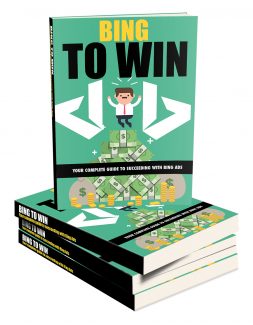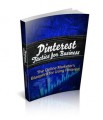 License Type: Master Resell Rights
License Type: Master Resell Rights  File Type: ZIP
File Type: ZIP
 SKU: 58930
SKU: 58930  Shipping: Online Download
Shipping: Online Download
Ebook Sample Content Preview:
Chapter 8: Your Master Guide to SEO for Bing
Internet marketers, meet Bing.
Bing, meet internet marketers.
Right, with the introduction out the way, let’s get you two acquainted…
Point #1 – Bing Likes to Take Things Literally
Bing is a little bit like that slightly slow friend that you had in school who didn’t really understand jokes. Or to put it another way: as an AI, Bing is probably somewhere on the spectrum.
Yes, taking things too literally is one of the most common criticisms levelled at Bing and that’s because it has a tendency to simply look for exact matches in the content. If you search for ‘I like to eat steak’, then Bing will look for websites that have that phrase or something similar somewhere in their text:
On the other hand, Google just looks for content about steak and about people who like to eat steak:
In this way, Google shows a little more understanding and has more ability to read between the lines. Not that this is always a good thing mind. Sometimes Google’s second guessing can actually be a bit irritating and can lead to results that aren’t directly related to what you’re looking for. If you ask a question for instance, then Bing will be more likely to break up a page where someone else has asked that same question. And this can be very useful!
But what it means for you, is that it’s still worth using some keywords. Whereas Google is much more about ‘latent semantic indexing’ and writing ‘around the subject’, perhaps using
some long-tail keywords – Bing will still reward you for including the basic keywords you’re trying to rank for. So try and do a little of both.
You’ll want to use a slightly lower link density than you used to if you want to avoid being penalized for spamming by Google – but you should still include some keywords in there for Bing!
Point #2 – User Engagement Matters
Something that Google and Bing can agree on is that user engagement matters.
Except Bing is even more explicit about this if anything and has even coined a phrase to describe it the activity they want to avoid: pogo sticking.
There will be none of this, thank you very much!
Pogo sticking is when a website jumps from one result, clicks back and then clicks on another. This is what they want to avoid so if you want Bing to love you, you need to prevent your visitors from wanting to click back. This means you need to grab attention early on and it means that you need to think about your page speed, your design etc.
Point #3 – And So Do Click Through Rates
Another similar factor that Bing also takes seriously is CTR – Click Through Rate. In other words, how many people click on your link.
So if they keep showing your website in their SERPs but no one ever clicks on it, then this suggests that your site doesn’t look very interesting. All it’s doing is cluttering up the page and taking up space that another site could make better use of!








